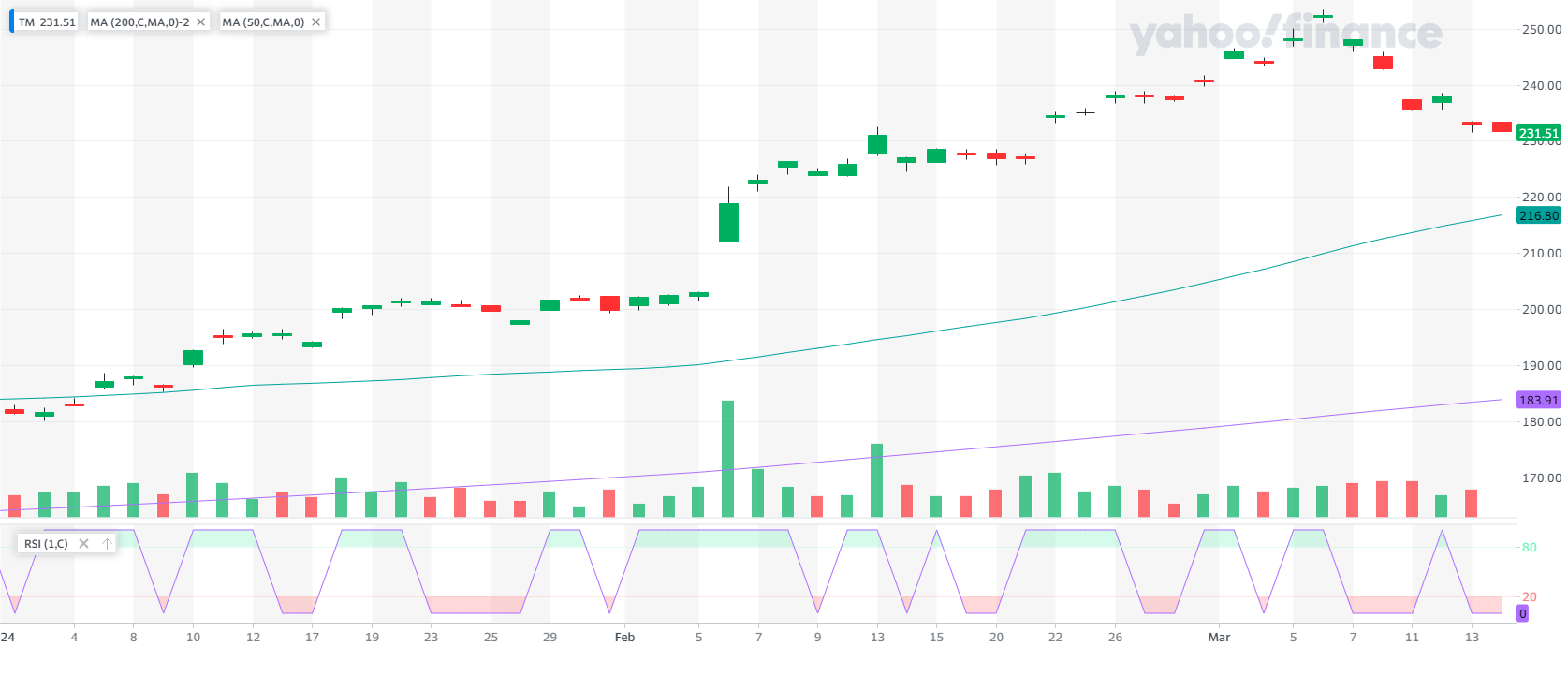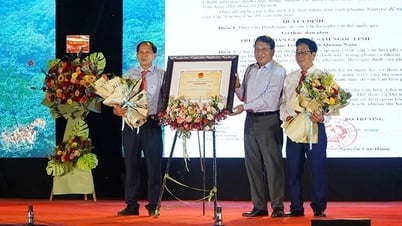
Toyota's earnings per share (EPS) came in at $6.81, beating the consensus estimate of $3.66. For the current fiscal year, Toyota is expected to post earnings per share of $22.20 on revenue of $302.37 billion, representing increases of 67.17% and 10.05%, respectively. Toyota's fiscal 2024 ends on March 31, and the company is expected to report its full-year financial results in May.
For the next fiscal year, the company expects EPS of $22.16 and revenue of around $297.99 billion, which would mean a decrease of -0.21% and -1.45%, respectively, compared to the current fiscal year.

The world's largest automaker's U.S.-listed shares have also risen 27.25% year-to-date to $231.51. Over the past 12 months, the stock has gained 71.56% and trades at a price-to-earnings ratio of 10.15. Its beta is 1.04.
Toyota’s vehicle lineup has been slower to change than that of U.S. rivals Ford Motor and General Motors. Toyota’s fiscal year wholesale sales of about 9.5 million vehicles were slightly lower than expected, with electric models — mostly hybrids — accounting for just 3.9 million. The company plans to ramp up production of large-scale electric vehicles over the next few years, from about 104,000 worldwide in 2023 to an expected 1.5 million by 2026.
In addition, Toyota also confirmed the new updated version of the Avalon sedan in China. The model has not changed much in appearance, the size is also kept the same, but the engine will be updated. In general, Toyota Avalon will use three types of engines from the Camry line, including: 2.0 gasoline engine with 152 horsepower, 2.0 hybrid engine with 173 horsepower, and 2.5 hybrid engine, although not specifically disclosed, the estimated capacity can be over 200 horsepower.

On average, Toyota spends about $1 million per hour on Research and Development globally to ensure that Toyota rapidly and continuously develops innovative, high-quality, and engaging vehicles and technologies. This ensures that Toyota not only meets the needs of its customers, but also anticipates the company’s role in societal progress. Toyota’s innovation has resulted in more patents from the U.S. Patent and Trademark Office than any other automaker in the last 10 years.
Toyota has agreed to a union demand for a fourth consecutive year of pay and bonus increases, the highest in 25 years. Toyota has agreed to raise monthly wages from 7,940 yen to 28,440 yen per person, according to the Mainichi newspaper.
While Toyota’s management has yet to shift its business toward electric vehicles as many would like, and is still leaning toward conventional and hybrid vehicles, there may be concerns about the future of traditional gasoline-powered vehicles and the emissions from gasoline use, but consumers may also be concerned about the number of charging stations, charging times, and locations when considering electric vehicles.
Up to this point, the decision of the company's board of directors has proven correct, and after the above, investors have reason to continue to believe in Toyota's long-term development.
Source




































































































Comment (0)